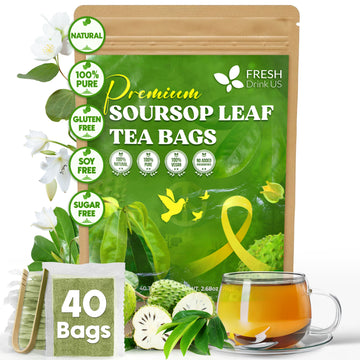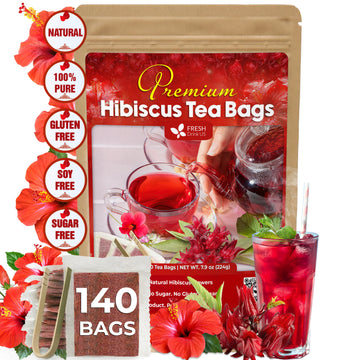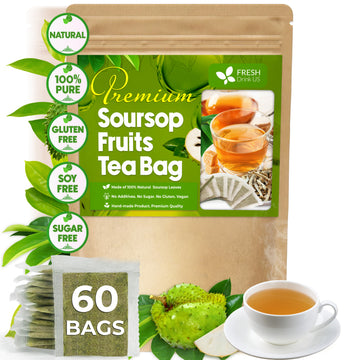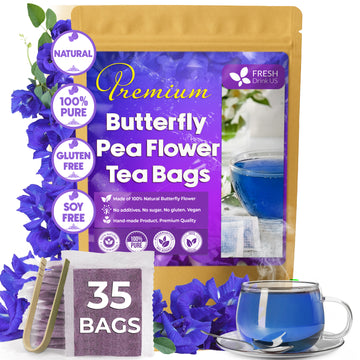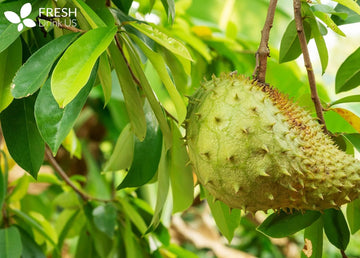Outline
- Introduction to Soursop Leaf Tea
-
Nutritional Composition
- Vitamins and Minerals
-
Health Benefits
- Antioxidant Properties
- Anti-inflammatory Effects
- Boosts Immune System
- Supports Digestive Health
- Regulates Blood Sugar Levels
- Promotes Healthy Skin
- Research Studies
-
How to Make Soursop Leaf Tea
- Ingredients
- Preparation
- Possible Side Effects and Precautions
- Conclusion
Soursop Leaf Tea Benefits
If you’re looking for a natural way to boost your health, consider sipping on soursop leaf tea. This flavorful herbal tea is gaining popularity for its numerous health benefits, backed by scientific research. From antioxidant properties to digestive health support, soursop leaf tea offers a wealth of advantages. Let’s delve into the details of why incorporating soursop leaf tea into your routine can be a wise choice for your well-being.
Nutritional Composition
Soursop leaves are rich in various vitamins and minerals that contribute to overall health. They contain significant amounts of vitamins C, B1, and B2, as well as essential minerals like potassium, magnesium, and calcium. These nutrients play crucial roles in maintaining bodily functions and promoting vitality.

Health Benefits
Antioxidant Properties
One of the key benefits of soursop leaf tea is its potent antioxidant properties. Antioxidants help combat free radicals in the body, which can cause cellular damage and contribute to aging and disease. By consuming soursop leaf tea regularly, you can help protect your cells from oxidative stress and promote longevity.
Anti-inflammatory Effects
Soursop leaf tea contains compounds with anti-inflammatory properties, which can help reduce inflammation throughout the body. Chronic inflammation is linked to various health issues, including heart disease, arthritis, and certain cancers. Incorporating soursop leaf tea into your diet may help mitigate inflammation and lower the risk of related conditions.
Boosts Immune System
The immune-boosting properties of soursop leaf tea make it a valuable addition to your wellness routine, especially during cold and flu season. The vitamins and antioxidants found in soursop leaves support immune function, helping your body defend against infections and illnesses.
Supports Digestive Health
Drinking soursop leaf tea can promote digestive health by soothing the digestive tract and reducing inflammation. It may help alleviate symptoms of gastrointestinal disorders like bloating, gas, and constipation. Additionally, soursop leaf tea contains dietary fiber, which supports regularity and aids in healthy digestion.
Regulates Blood Sugar Levels
For individuals managing diabetes or insulin resistance, soursop leaf tea may offer benefits in regulating blood sugar levels. Some studies suggest that compounds found in soursop leaves can improve insulin sensitivity and reduce glucose absorption, helping maintain stable blood sugar levels.
Promotes Healthy Skin
The vitamins and antioxidants in soursop leaf tea can contribute to healthy, radiant skin. Antioxidants help protect the skin from damage caused by environmental stressors and UV radiation, while vitamins promote collagen production and skin elasticity. Regular consumption of soursop leaf tea may help maintain youthful skin and prevent premature aging.
Research Studies
Numerous research studies support the health benefits of soursop leaf tea. Studies have shown its potential in fighting cancer cells, reducing inflammation, and improving overall health markers. While more research is needed to fully understand its mechanisms and benefits, the existing evidence is promising.
How to Make Soursop Leaf Tea
Ingredients
To make soursop leaf tea, you’ll need fresh or dried soursop leaves and water. You can also add optional ingredients like honey or lemon for flavor.
Preparation
- Wash the soursop leaves thoroughly to remove any dirt or debris.
- Boil water in a pot or kettle.
- Add the soursop leaves to the boiling water.
- Reduce heat and let the leaves simmer for 10-15 minutes.
- Remove the pot from heat and let the tea cool slightly.
- Strain the tea to remove the leaves.
- Pour the tea into cups and enjoy.
Possible Side Effects and Precautions
While soursop leaf tea offers many health benefits, it’s essential to consume it in moderation and be aware of potential side effects. Some individuals may experience allergic reactions or digestive discomfort when consuming soursop leaf tea. Pregnant or breastfeeding women should consult with a healthcare professional before adding soursop leaf tea to their diet.
Conclusion
Soursop leaf tea is a delicious and nutritious beverage with a host of health benefits. From its antioxidant properties to immune-boosting effects, soursop leaf tea can support your well-being in various ways. By incorporating this herbal tea into your daily routine, you can take proactive steps towards better health and vitality.
FAQs
-
Is soursop leaf tea safe to drink every day?
While soursop leaf tea is generally safe for most people, it’s essential to consume it in moderation. Drinking excessive amounts of any herbal tea can lead to potential side effects.
-
Can soursop leaf tea help with weight loss?
While soursop leaf tea may support weight loss as part of a healthy diet and lifestyle, it’s not a magic solution for shedding pounds. It can contribute to overall health and well-being but should be combined with other healthy habits for effective weight management.
-
Are there any contraindications for drinking soursop leaf tea?
Individuals with certain medical conditions or those taking medications should consult with a healthcare professional before consuming soursop leaf tea, as it may interact with certain drugs or exacerbate existing health issues.
-
Can I use dried soursop leaves to make tea?
Yes, dried soursop leaves can be used to make tea. Simply follow the same steps for preparation outlined above, using dried leaves instead of fresh ones.
-
Where can I purchase soursop leaves for making tea?
Soursop leaves can be found at some health food stores, herbal shops, or online retailers specializing in herbal remedies and supplements.

